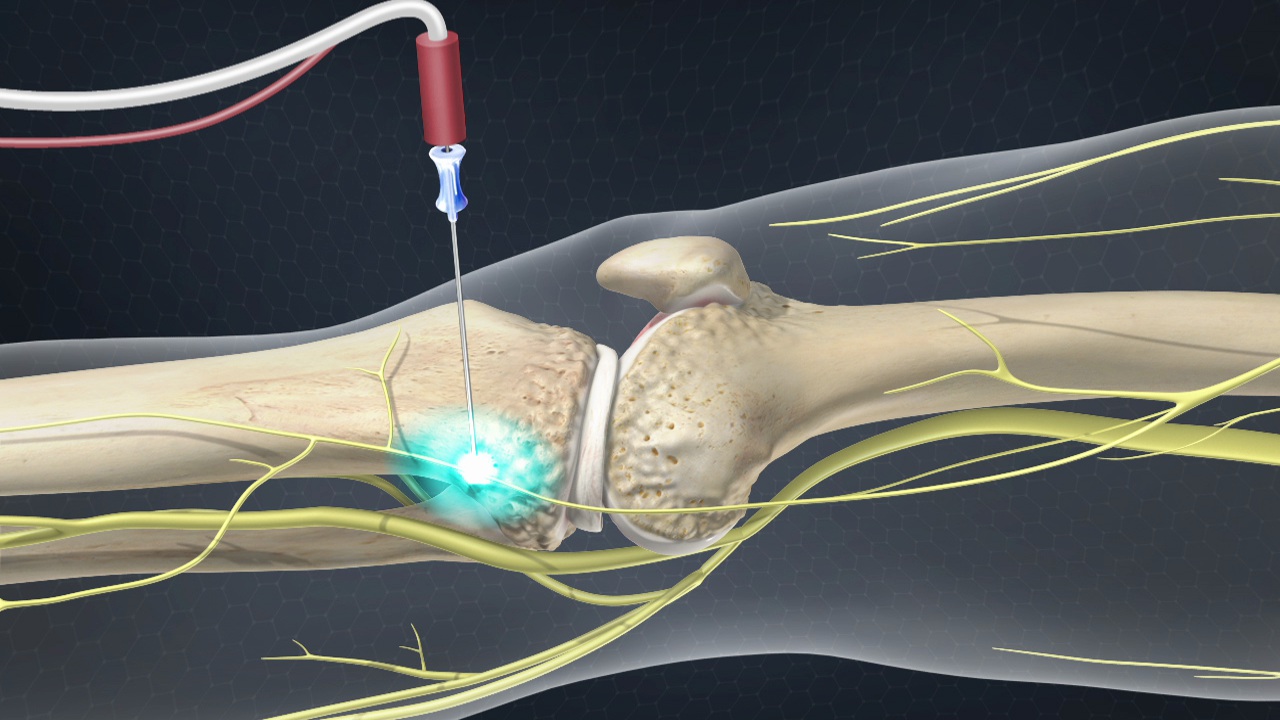Osteoarthritis of the knee is the most common cause of chronic knee pain and affects an estimated 14 million people in the United States. Total knee replacement is the ultimate procedure for the treatment of late-stage osteoarthritis of the knee. Because most total knee replacements only last approximately 20 years surgeons generally delay surgery and use more conservative treatments to manage knee osteoarthritis.
Non-operative management protocols for osteoarthritis of the knee include weight loss, modifications of activities, and physical therapy. Pharmacological treatments include nonsteroidal anti-inflammatory drugs (NSAIDs), opioids, and duloxetine. However, these interventions can be associated with a number of adverse events.
Corticosteroid injections into the knee joint can provide short-term relief of pain but repeat injections have been associated with cartilage damage. Platelet-rich plasma injections have recently attained popularity but there are questions regarding standardization and the quality of clinical evidence.
Viscosupplementation treatment involves the injection of hyaluronic acid (HA) or its derivatives into the affected knee. Although the beneficial effects remain unknown, lubrication and shock absorption studies have demonstrated modest effects for up to 26 weeks. The United States Food and Drug Administration (FDA) recently brought into question the mechanism of action of viscosupplementation and clinical practice guidelines do not currently recommend HA for the treatment of knee pain associated with osteoarthritis.
Cooled radiofrequency ablation (CRFA) involves the induced thermal damage of neural structures in order to inhibit the transmission of pain signals. It is believed that pain becomes attenuated while the nerve structure is restored. The longevity of the CRFA effect for relieving knee osteoarthritis pain is at least six months with the majority of patients in some trials demonstrating 12 months durability.
The purpose of this study was to perform a randomized, controlled trial to test the efficacy and safety of Cooled radiofrequency ablation (CRFA) compared with intra-articular injection of HA for the management of knee pain in patients with osteoarthritis.
Two hundred and sixty patients with knee pain from osteoarthritis that was not effectively responsive to prior non-operative treatments were screened for enrollment in a multicenter, randomized trial. One hundred and eighty-two met the inclusion criteria and underwent diagnostic block injections and those with a minimum of 50% pain relief were randomized to receive either CRFA or a single HA injection. One hundred and seventy-five were treated (88 with CRFA and 87 with HA). Evaluations for pain, function, quality of life, and safety were performed at one, three, and six months after treatment.
The results showed that demographic characteristics did not differ significantly between the two study groups. A total of 158 patients (76 in the CFA group and 82 in the HA group) completed the six month post treatment follow-up.
Patients treated with Cooled radiofrequency ablation (CRFA) demonstrated a significant improvement in the relief of pain and overall function compared with subjects treated with a single injection of HA. No serious adverse effects related to either of the treatments were noted and the overall adverse event profiles were similar.
References :
Chen et al.: J. Bone Joint Surg., 102:1501-1510, 2020





